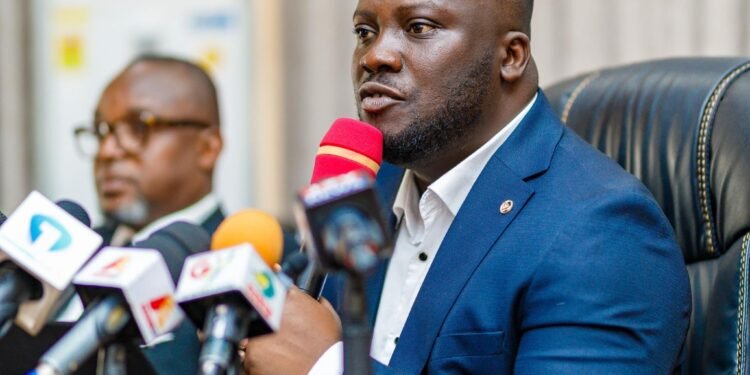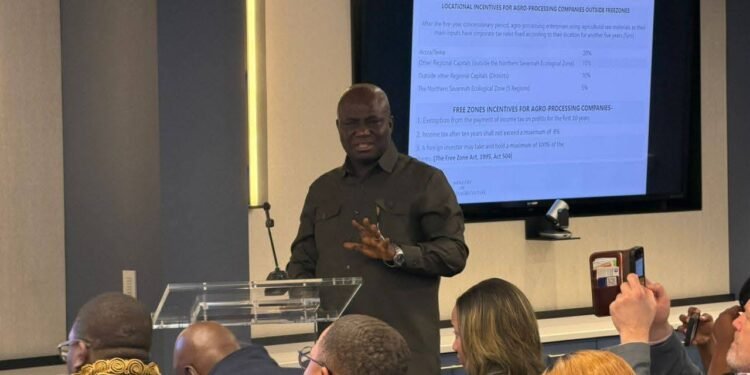Godfred Bokpin, a respected professor at the University of Ghana Business School, has sounded a clarion call, stating unequivocally that Ghana’s economy requires a comprehensive reset.
Speaking at a national dialogue forum themed “Building an economy beyond IMF bailouts,” organized by Media General in collaboration with the Africa Center for Energy Policy (ACEP), Prof. Bokpin highlighted critical issues plaguing Ghana’s economy.
One of the glaring concerns raised by Prof. Bokpin is the persistent challenge in managing public finances efficiently. He noted with concern that since gaining independence, Ghana has struggled to wield effective control over its fiscal policies. Despite escalating borrowing rates, the tangible outcomes of these financial endeavors remain elusive, a fact that Prof. Bokpin finds deeply disconcerting.
“Since independence, we have not been able to manage our public finances efficiently,” remarked Prof. Bokpin, underscoring the longstanding issue that has dogged the nation’s economic progress.
Addressing the support received from the International Monetary Fund (IMF), Prof. Bokpin expressed apprehension, suggesting that Ghana is likely to return to the IMF fold once again after the conclusion of the current bailout program. He emphasized that the root causes behind Ghana’s recurrent reliance on the IMF for financial assistance remain unaddressed.
Fundamental factors, including the mismanagement of public finances and entrenched corruption, continue to undermine Ghana’s economic stability, according to Prof. Bokpin. These systemic challenges have contributed significantly to the country’s recurring need for external financial support, leading it back to the doors of Bretton Woods institutions for bailouts.
“If a pregnant woman tells me she won’t give birth again I will believe it but if Ghana tells me we won’t go to the IMF again I won’t believe it. Our discussions should be how do we influence expenditure under the Public Financial Management Act? How do we solve the procurement? About 80 percent of the large scale contracts are done through sole sourcing.”
Prof. Bokpin
Prof. Bokpin’s remarks serve as a sobering reminder of the urgent need for comprehensive reforms within Ghana’s economic framework. The recognition of deep-seated issues such as fiscal mismanagement and corruption is crucial for charting a sustainable path towards economic resilience and self-reliance.
Vigilance of Ghanaians and CSOs
The Executive Director of ACEP, Ben Boakye, on his part, asked civil society organizations (CSOs) and Ghanaians, in general, to be vigilant and ensure that the ongoing programme with the IMF works for the people.
To him, playing an effective watchdog role by CSOs will ensure that the programme achieves its objective. “We must be vigilant and play the watchdog well. We are reaching out to everybody for us to have a conversation from the defects that keep us going back to the IMF and to ensure we can build on the economy that thrives on our efforts,” he said.
Meanwhile, regarding the IMF deal, the Minister of Finance Dr Mohammed Amin Adam earlier disclosed that the Ministry, the Bank of Ghana (BoG) and the IMF team had a fruitful opening meeting to commence the 2nd Review mission.
The mission staff from the IMF arrived in the country to commence the assessment of Ghana’s performance against the program’s objectives. This evaluation will span the next two weeks.
Dr Mohammed Amin Adam also stated that a Preliminary assessment undertaken by the Ministry and the central bank showed that they were on course to meet most of the targets under the Programme with the Fund.
“The Ministry of Finance is working with the BoG in preparation for the IMF 2nd Review Mission. Preliminary assessment undertaken by MoF and BoG shows that we are on course to meet most of the targets under the Programme.
“During the 2nd Review, the IMF mission will engage the authorities in technical and policy discussions to enable them to assess Ghana’s performance on programme objectives, the 6 Quantitative Performance Criteria (QPCs), the 3 Indicative Targets (ITs), 1 Monetary Policy Consultation Clause (MPCC), and the Structural Benchmarks (SBs) with respect to end Dec 2023 targets. They will also review performance towards upcoming QPCs, ITs, and SBs.”
Dr Mohammed Amin Adam
As Ghana grapples with the imperative for economic revitalization, the insights provided by Prof. Bokpin and CSOs serve as a catalyst for meaningful dialogue and action. It is incumbent upon policymakers, stakeholders, and citizens alike to heed the call for reform and work collaboratively towards building a more robust and prosperous economic future for Ghana.
READ ALSO: President Akufo-Addo Criticized for Non-Compliance of Act 463























